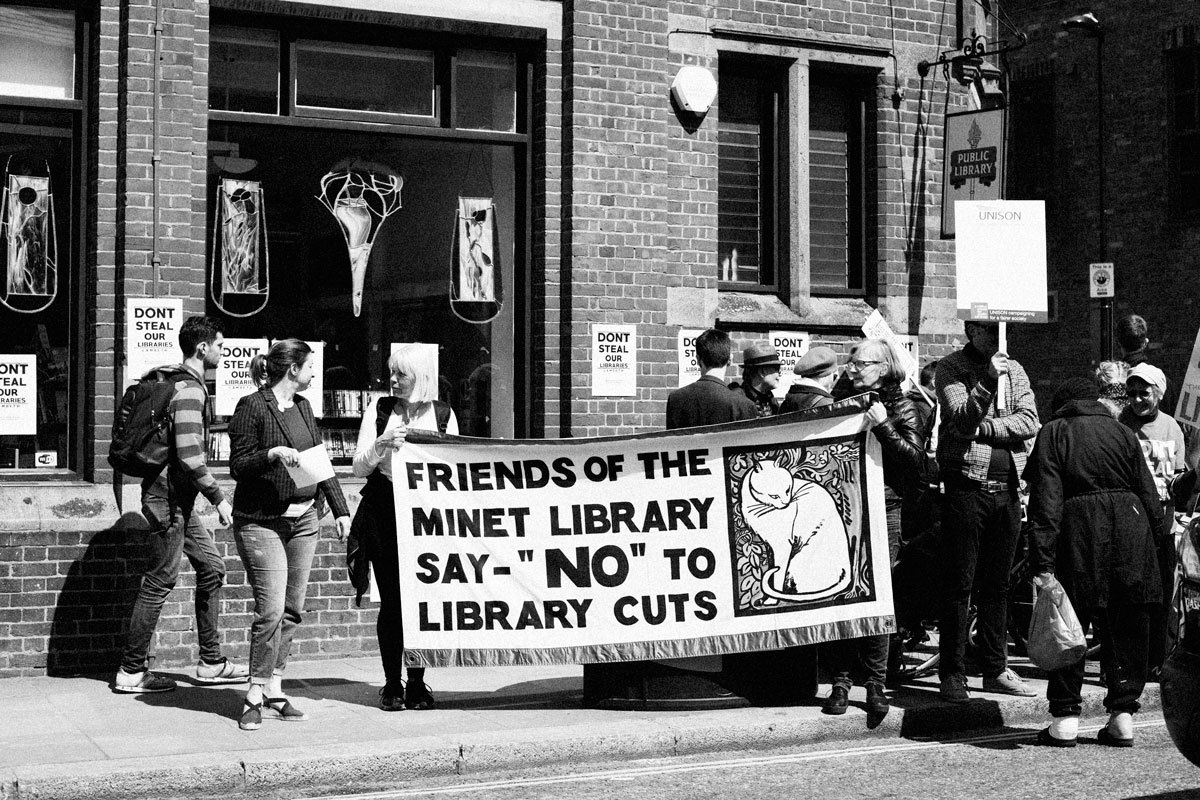Carnegie Library in Lambeth, South London closed its doors on 31st March. Two weeks later, protesters embarked on a ten-day occupation of the Grade II listed building, led by the campaign Defend the Ten. The protest took aim not only at Lambeth council’s closure of Carnegie library, but its planned changes to further libraries across the borough over the coming months.
It’s all part of on-going attempts to reduce public spending through the closure of libraries up and down the country. According to a BBC report, 343 libraries have closed since 2010 – a huge increase on the government’s estimate that only 110 static libraries had closed in that time. A further 111 closures are still planned. The closures have led to over 8000 job cuts, most of which have been replaced by 15000 volunteers.
New residents Greenwich Leisure Ltd. (GLL) – who describe themselves as a “charitable social enterprise making community services & spaces better for everyone” – plan to transform the Carnegie Library Building into (yet another) gym. It comes after a report by The Runnymede Trust named Lambeth London’s most unequal borough. Black and minority ethnic groups in Lambeth were found to be at a greater disadvantage when it comes to housing, health, education and employment than anywhere else in the capital. Dismantling the last, free information and education resource available to them and others, is therefore seen by many as a wilful attempt to ignore the serious issues raised by this and similar reports.
As one attendee at a Defend the Ten meeting last week put it: new residents in Lambeth want to let off steam; existing residents require education. GLL have responded to this with the promise of retaining an unspecified number of books in one of the building’s smaller rooms. Yet the Zumba soundtrack wouldn’t be most people’s first choice of background music while reading or studying. As an offer of compensation, it also sums up the attitude underpinning the private sell off of state assets: reducing places to objects, worth only what is calculable by chartered surveyors, as opposed to the people who use them on a daily basis.
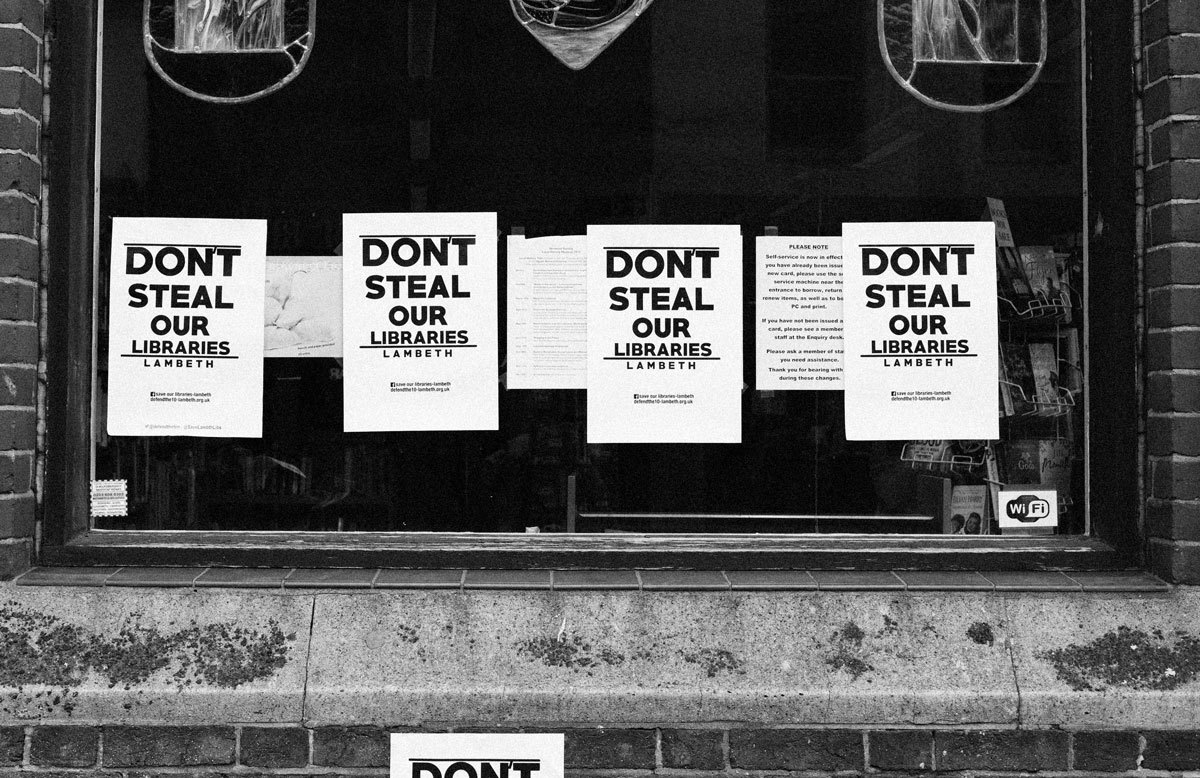
The council argues that it is unable to protect the libraries from the huge public spending cuts imposed by the Conservative government. Campaigners refute this on the grounds that it will cost more money to pay for initial renovations, on-going maintenance and staff costs and to pay for security guards to protect the property from squatters and further protests in the intervening months before GLL move in. Implicit in the response from local and central government to the campaign’s actions, is the idea that libraries are an outdated, middle-class indulgence.
To prove this assessment wrong, we caught up with some of Defend the Ten’s youngest and most vocal signatories, many of whom occupied Carnegie library for several days in a row. As they campaigned outside the threatened Upper Norwood Joint Library last week, i-D asked them why libraries are so important and how they hope their actions will shame the authorities into doing more to protect them.
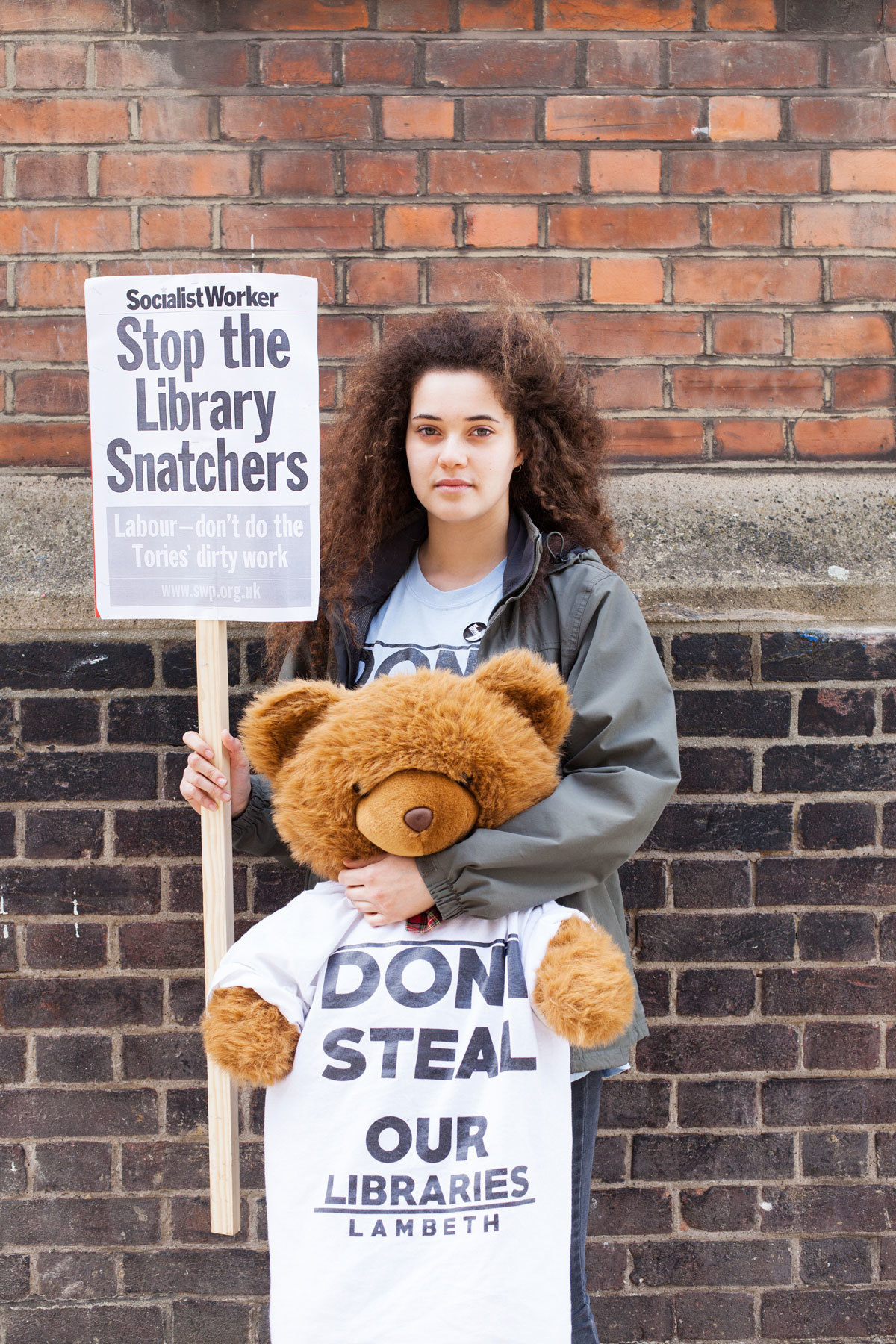
Rhiannon, 18 – occupied Carnegie Library for 10 days
“I live very close to Carnegie library and I’ve been going there since I was a child. When I found out the council was closing it I wanted to get involved in the campaign to stop them. I saw the Defend the Ten campaigners outside with pickets and joined them on the first night of the occupation. I didn’t come out until ten days later.
“I didn’t know anyone when I went in. I didn’t have any of my family with me. I texted my mum saying, ‘I won’t be back tonight, I’m sleeping in the library’ and she was really supportive. Pretty soon a little family had formed inside the library and everyone came together to share evening meals.
“It’s exam season at the moment and the library was one of the only quiet places where I could study. I’m also planning a gap year and it was the only place nearby where I could access all of the relevant travel books. A lot of my friends use the library because they don’t have a computer or printer at home. So I joined the occupation for them too.”
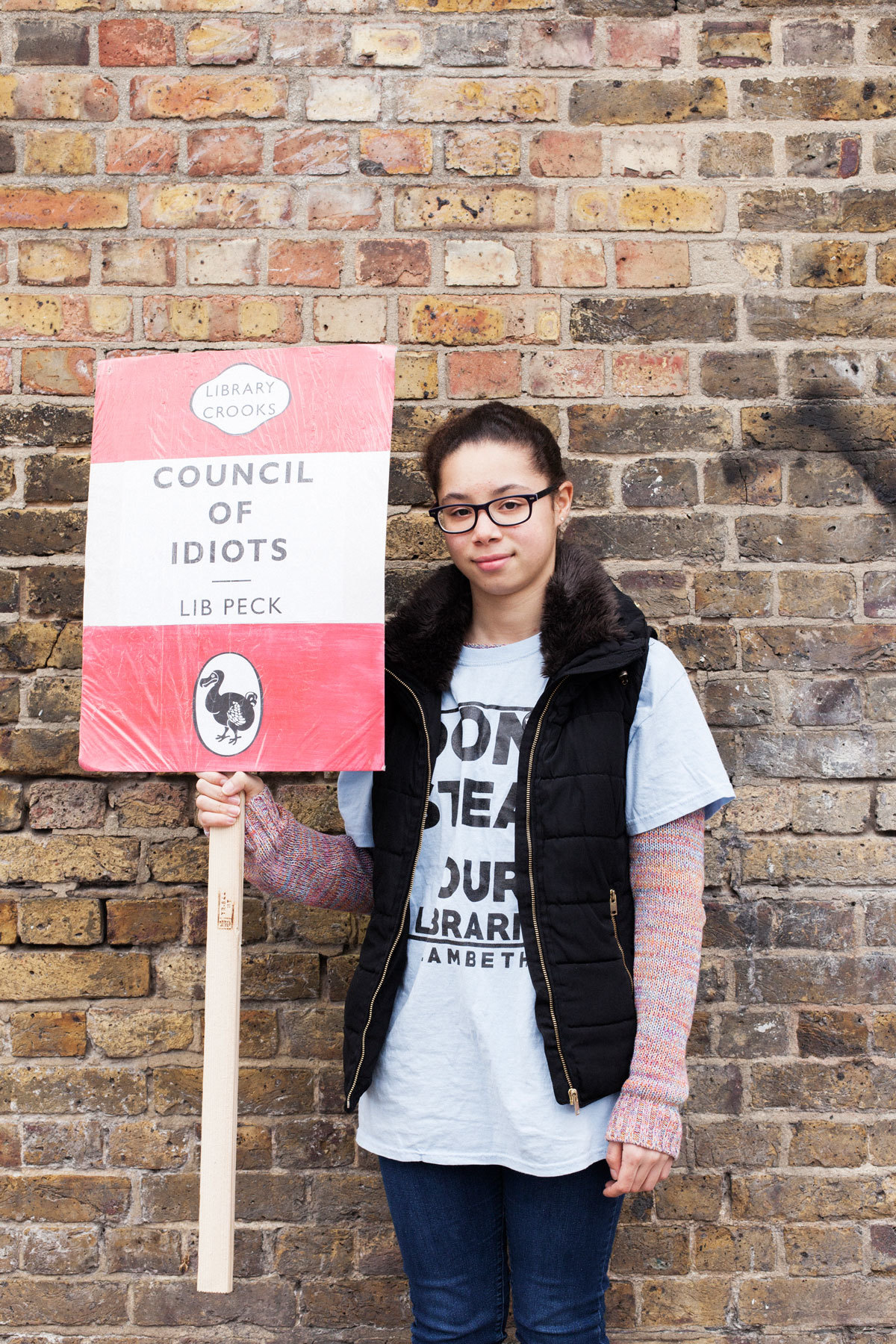
Demi, 16 – occupied Carnegie library for 9 days
“I was one of the few people who left the library during the occupation and came back in, which was really scary. I had to hide from security and climb in through the window.
“Having met so many interesting people and seeing how politics can have such an impact on local communities has made me want to pursue a career in politics myself.”
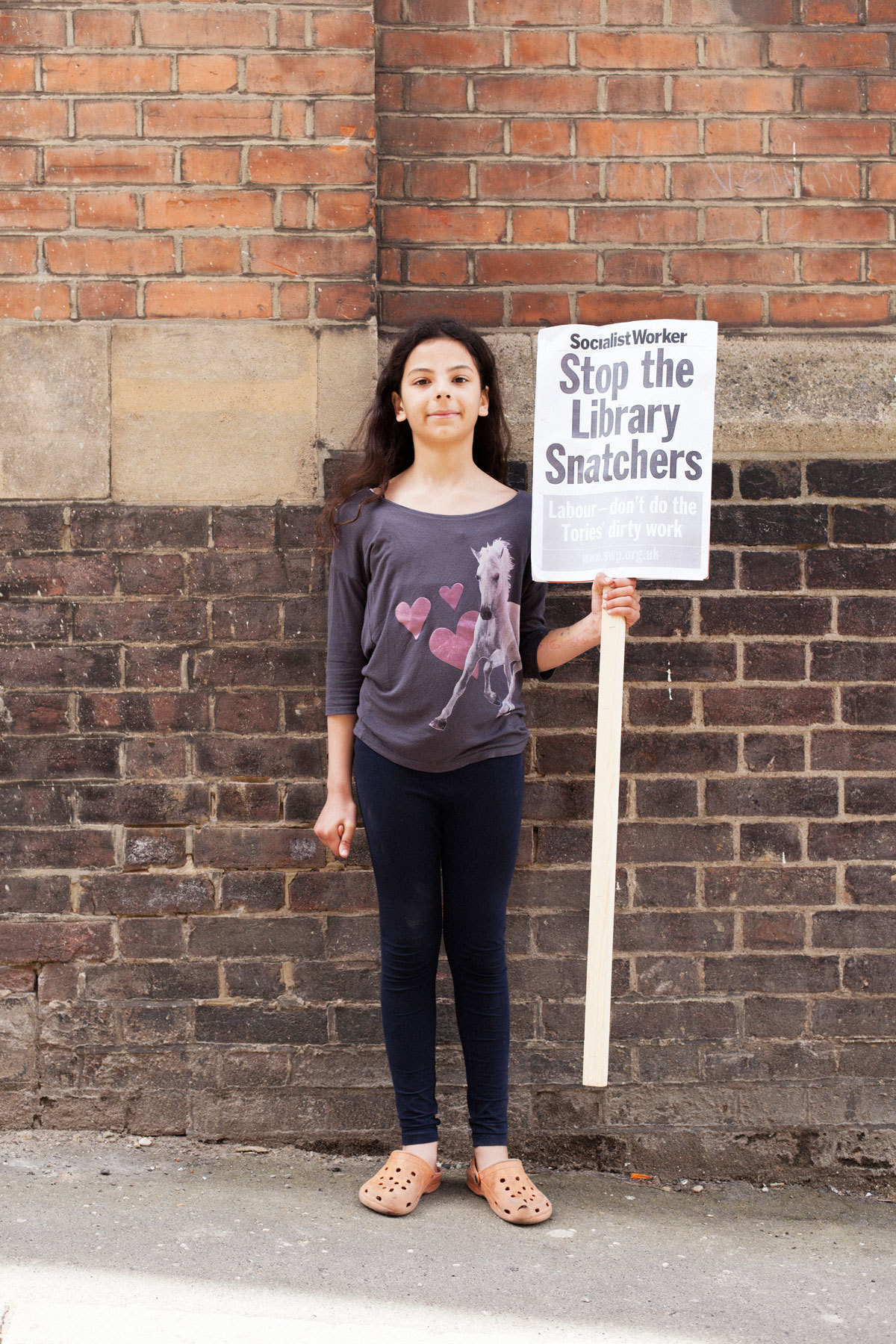
Hilde, 9 – occupied Carnegie library for 6 days
“I walked past the protest with my mum and saw that people were sleeping inside. I asked her if we could go home to get food for them. When we came back, the police arrived outside and we decided to stay for the night, then the next night. We stayed for six nights all together, which is the longest I’ve gone without having a shower.
“I read a lot and I use the library to find out about new books and to meet up with other children. I also use the computer, so it’s really important for me that it doesn’t close.”
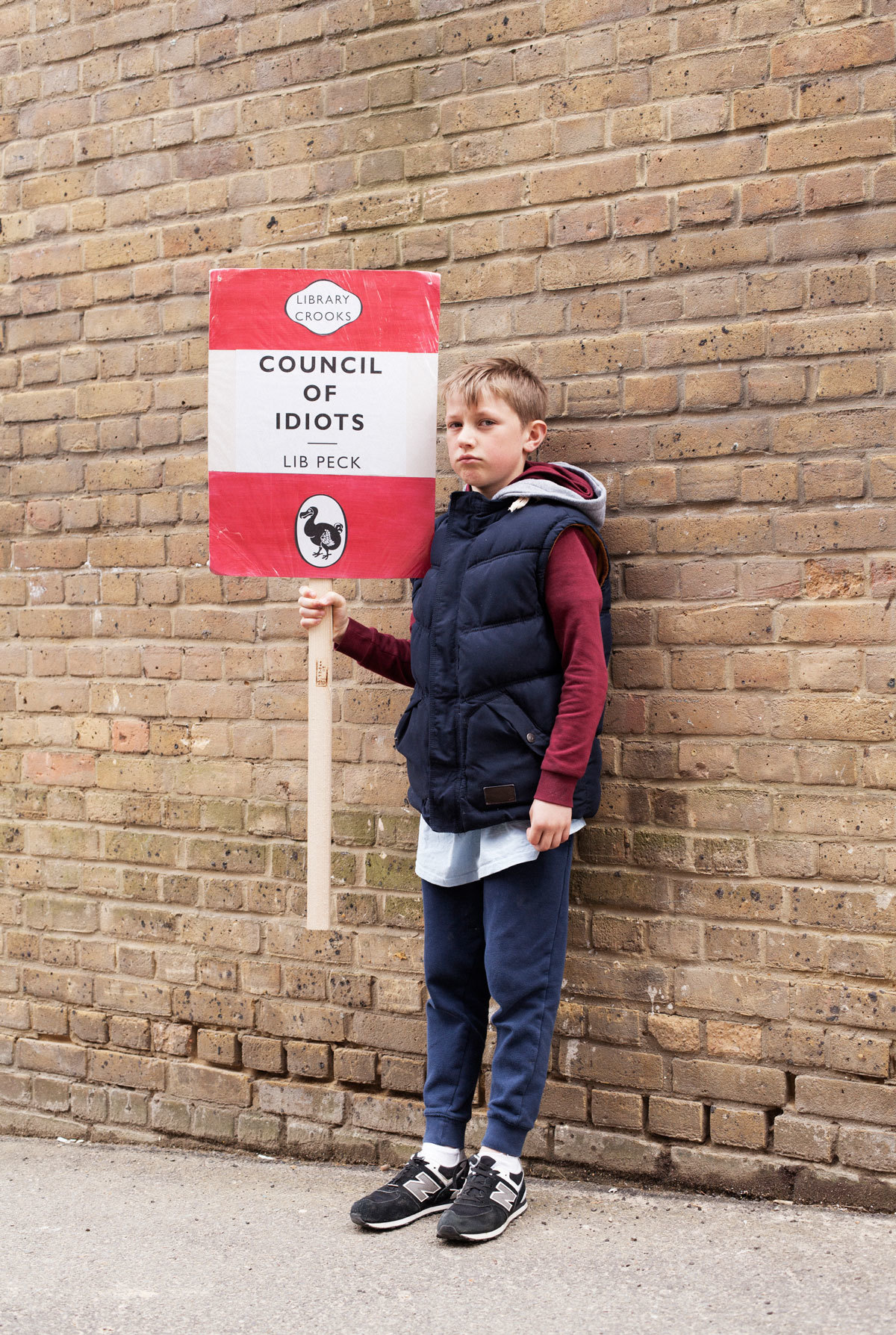
Felix, 11 – protested outside Carnegie library and brought supplies to occupiers
“I live really close to Carnegie library. It’s the first place my mum and dad let me walk to on my own. It’s where I get my comics and books. It’s been really annoying since they closed because I haven’t been able to get any of the comics and books I like to read.
“My sister was inside the library during the occupation, so I came down every day to bring food and clean clothes.”
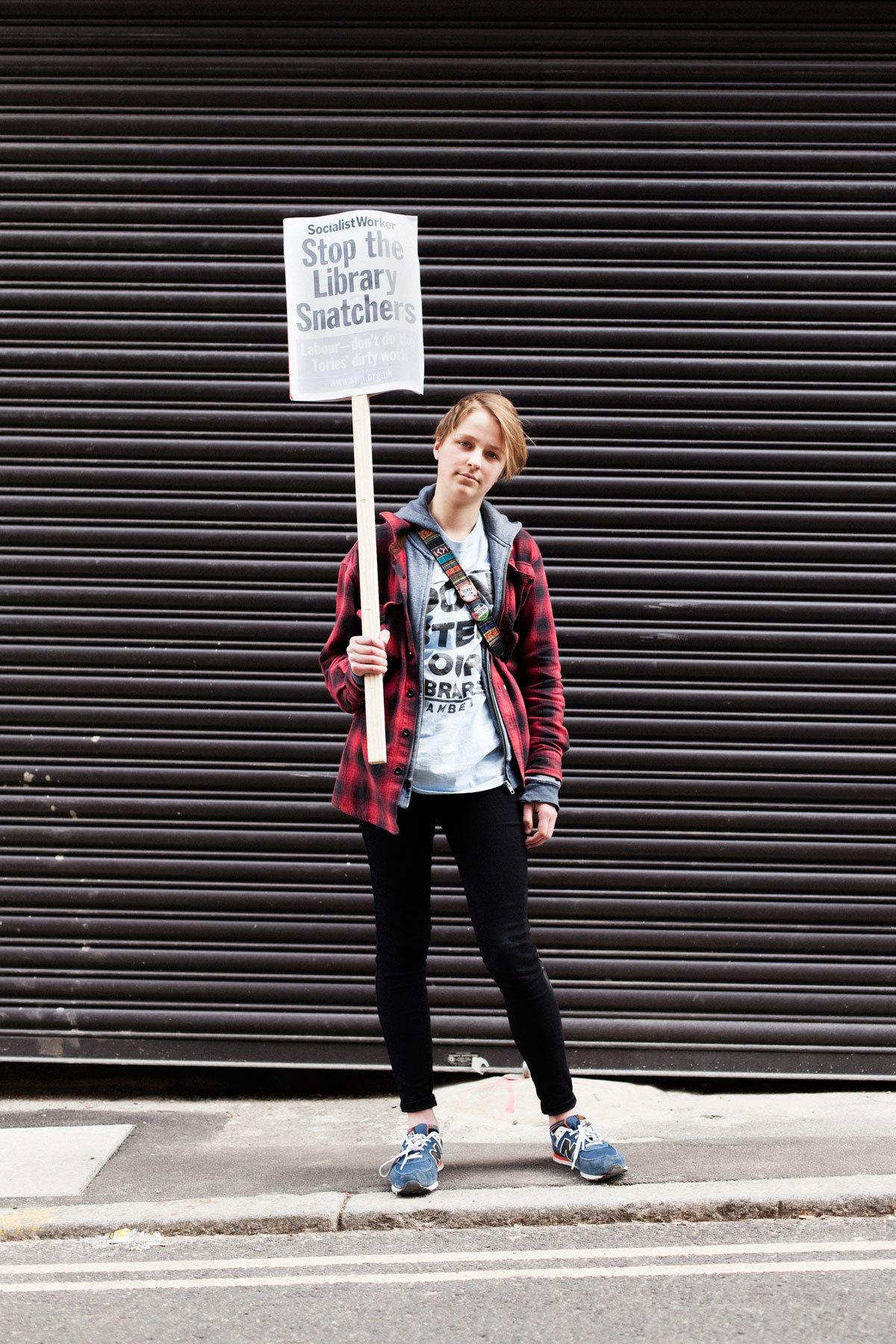
Rosa, 15 – Felix’s sister who occupied Carnegie library for 10 days
“I go to demos, so when we heard that our local library, Carnegie, was closing I sort of suggested, jokingly, that we could occupy it. After being there for a day-long protest, others agreed that it would be a good idea to sleep over, so I ran home to get my sleeping bag and stayed there for ten days. I was washing my hair in the sink and drying it with the hand dryer.
“A lot of people think libraries are obsolete because of the internet, but they’re not. Not everyone has a quiet place at home where they can work. Lots of people at my school don’t. It’s important to have somewhere where you can go to work and read and study that doesn’t require you to have to buy a coffee. Because a lot of people can’t afford to and don’t want to. It’s also important that there’s somewhere where you can go to do those things and also feel part of a community, where you can ask questions and get the help you need.”
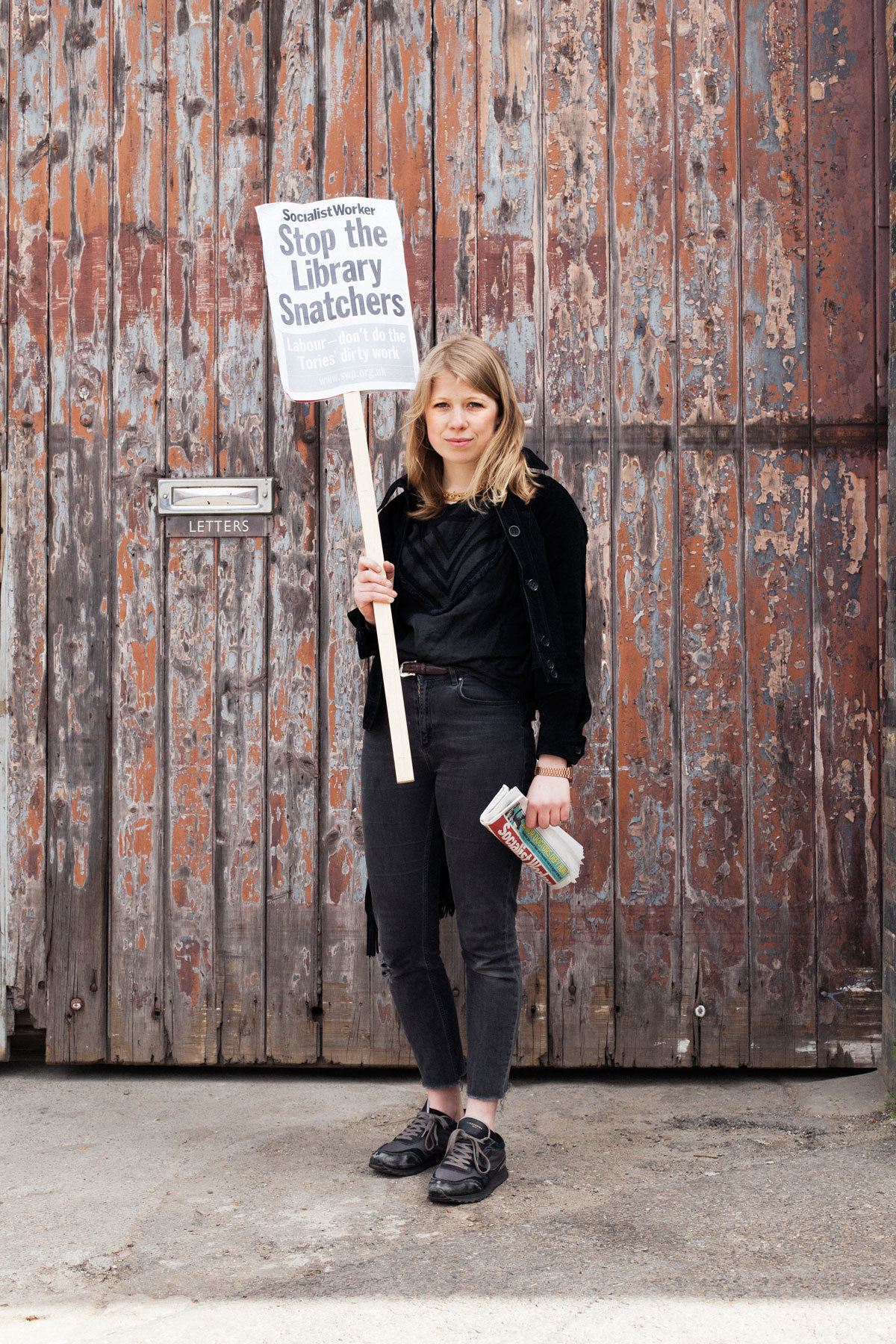
Cici Washburne, 27 – occupied Carnegie library for 3 days
“I used to live opposite Minet Library and used it a lot while studying to become a fashion designer. I rely on libraries always being there. I’ve gone through phases of using them all the time, and phases where I use them less frequently, and I think that’s true of a lot of people. Lots of people in their twenties need them because they’re studying, they need to use computers, they want access to free books, and lots of my friends were really supportive about me being involved in the occupation for that reason.
“The campaign is working — we got local councillor Rachel Heywood to come out and support us, Lambeth Council are being inspected by DCMS. So we’re getting there, but it won’t be an overnight thing. The great thing is seeing how the campaign has united a community and people from all different backgrounds and with different beliefs, are coming together for the same cause.”

Jamil, 21 – occupied Carnegie library for 1 night.
“I found out about the campaign through the Green Party, which I’m involved in. I stayed for the first night of the occupation. Libraries are the last resource open to everyone. They offer English language material. We hear a lot of people saying immigrants can’t speak English and now we’re cutting one of the main resources via which they can learn! You can use the internet if you don’t have a connection at home, there are services to help you prepare your CV and you can get interview preparation advice. It’s a myth that only middle class people use libraries – you only have to use one to see that all kinds of people are using them on a daily basis.”
Credits
Text Nathalie Olah
Photography Rosie Harriet Ellis
